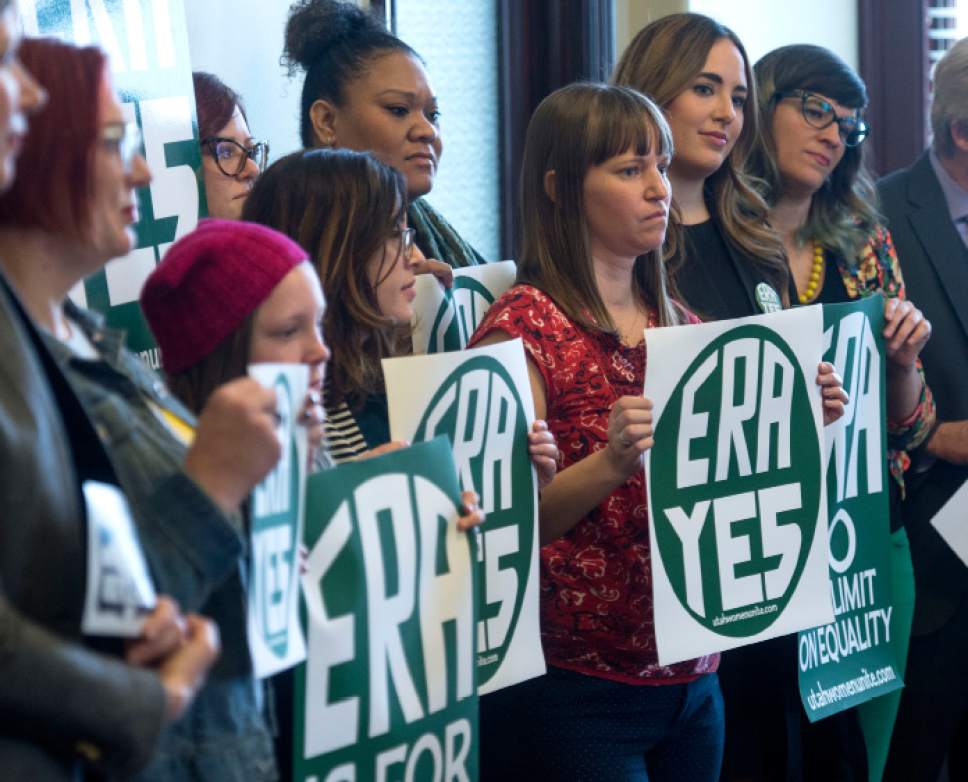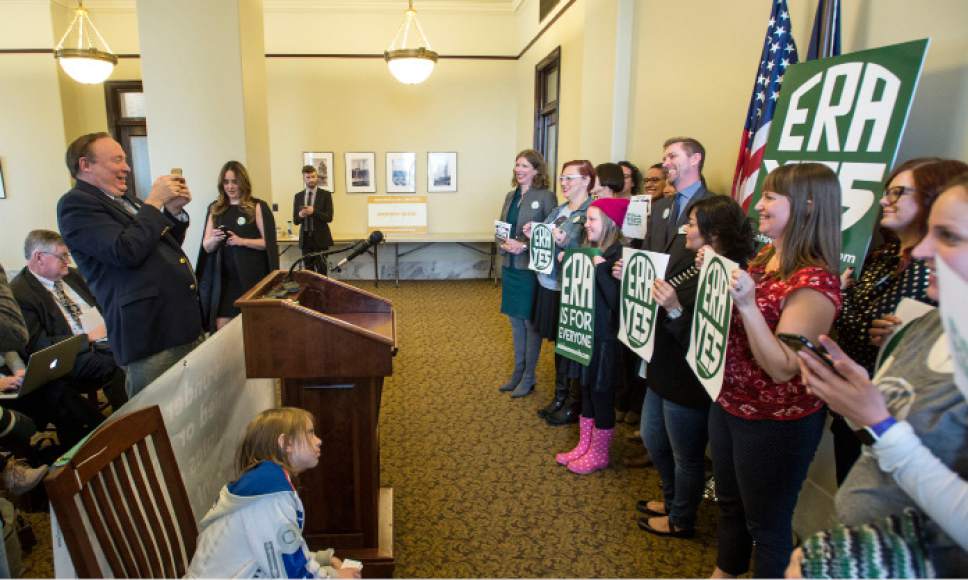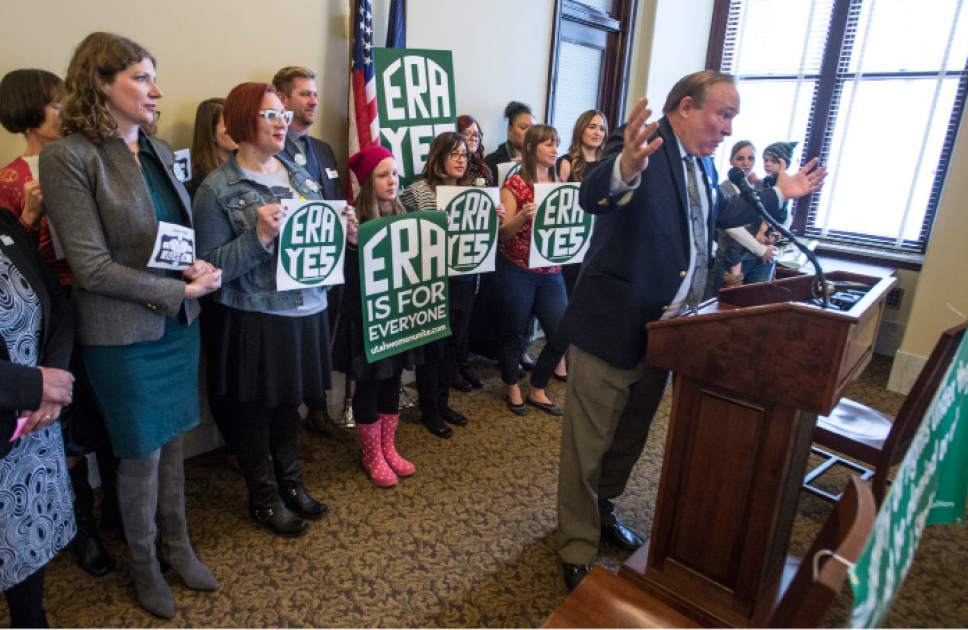This is an archived article that was published on sltrib.com in 2017, and information in the article may be outdated. It is provided only for personal research purposes and may not be reprinted.
More than 40 years since it was first considered in Utah, Sen. Jim Dabakis, D-Salt Lake City, revived efforts Monday to ratify the proposed Equal Rights Amendment to the U.S. Constitution.
"It should have happened so long ago," the senator said about the amendment that seeks to outlaw discrimination based on gender. He introduced HRJ10 seeking to win Utah's ratification of it.
The time set for ratification of the ERA expired in 1982, and was not extended. Only 35 of the required 38 states had ratified it then, and five had attempted to rescind their ratification.
But some now are challenging the time limit as unconstitutional, perhaps opening the door for Utah and others to ratify the proposal.
Kate Kelly, who organized Ordain Women to advocate for ordination of women to the LDS Church, and who proposed re-introducing an ERA resolution in Utah, said many states nationwide have pushed similar resolutions to try either to finish ratification of the ERA, or start the process anew.
The Utah legislation comes after thousands of women marched on the state Capitol on the first day of this year's legislative session, protesting what they say are anti-women stances by President Donald Trump. Organizers say that gives new life to the ERA.
"We need it to protect against a rollback on significant advances in women's rights achieved in the past half century," said Rep. Angela Romero, D-Salt Lake City.
Such protective laws as Title IX or the Violence Against Women Act could be revoked by Congress "or gutted by the executive branch at any time," said Lavinia Taumoepeau-Latu, a founder of Utah Women Unite.
"We are vulnerable," she added. "Only with the ERA will women have guaranteed protection of our inalienable rights."
Rep. Rebecca Chavez-Houck, D-Salt Lake City, said, "There are still women being sexually harassed" with little legal protection.
Opponents to the ERA in the 1970s argued it could have unintended consequences, such as forcing women into the military draft. Some argued it could do away with alimony and a tendency for women to win custody of children in divorce case, and argued it could lead to same-sex bathrooms.
"Bring all the baggage and all the crap and all the stuff you want [from the 1970s] to make it sound like something horrible," Dabakis said. "It just says both sexes will be treated the same by law."
The ERA says, "Equality of rights under the law shall not be denied or abridged by the United State or by any state on account of sex."
"Leave your baggage in the '70s, and join me," Dabakis said. "Just look at the words, and pass it unanimously."
The press conference almost appeared like it was taking place in the '70s, with the same green-and-white signs and buttons that were common then, saying, "ERA YES," and "ERA is for everyone."
Supporters there also repeated an old 1970s chant, "Ho ho. Hey hey. Ratify the ERA."











